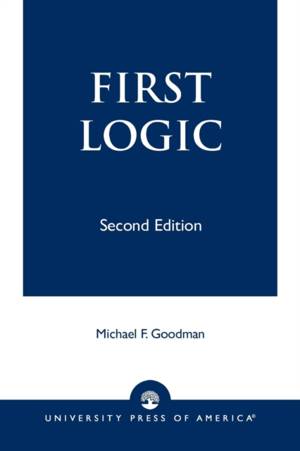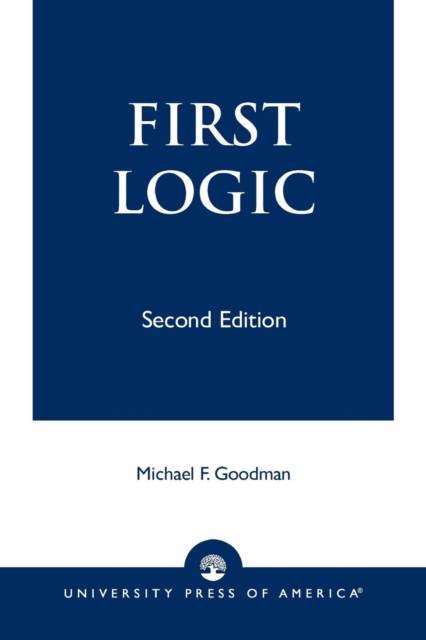
- Afhalen na 1 uur in een winkel met voorraad
- Gratis thuislevering in België vanaf € 30
- Ruim aanbod met 7 miljoen producten
- Afhalen na 1 uur in een winkel met voorraad
- Gratis thuislevering in België vanaf € 30
- Ruim aanbod met 7 miljoen producten
Zoeken
Omschrijving
First Logic is an introduction to the study of logic. Understanding the concepts of validity, invalidity, and acceptability, unacceptability of arguments is the primary focus of this book. The first chapter introduces the reader to some of the basic concepts, such as validity, soundness, and acceptability. Chapters two and three are devoted to Aristotelian logic, including the traditional square of opposition and Venn diagrams for sentences and arguments. Chapter four is a treatment of a number of important informal fallacies of reasoning (appeals to authority, ignorance, force; petitio arguments, equivocation, and the deontic fallacy). Chapters five through eight are on various aspects of formal/symbolic logic: translating from natural language to the artificial language of logic; truth tables and truth trees; the method of natural deduction; predicate logic, including the logic of relations; and the concept and use of identity and its symbolization.
Specificaties
Betrokkenen
- Auteur(s):
- Uitgeverij:
Inhoud
- Aantal bladzijden:
- 334
- Taal:
- Engels
Eigenschappen
- Productcode (EAN):
- 9780761805014
- Verschijningsdatum:
- 30/07/1997
- Uitvoering:
- Paperback
- Formaat:
- Trade paperback (VS)
- Afmetingen:
- 152 mm x 229 mm
- Gewicht:
- 489 g

Alleen bij Standaard Boekhandel
+ 257 punten op je klantenkaart van Standaard Boekhandel
Beoordelingen
We publiceren alleen reviews die voldoen aan de voorwaarden voor reviews. Bekijk onze voorwaarden voor reviews.











